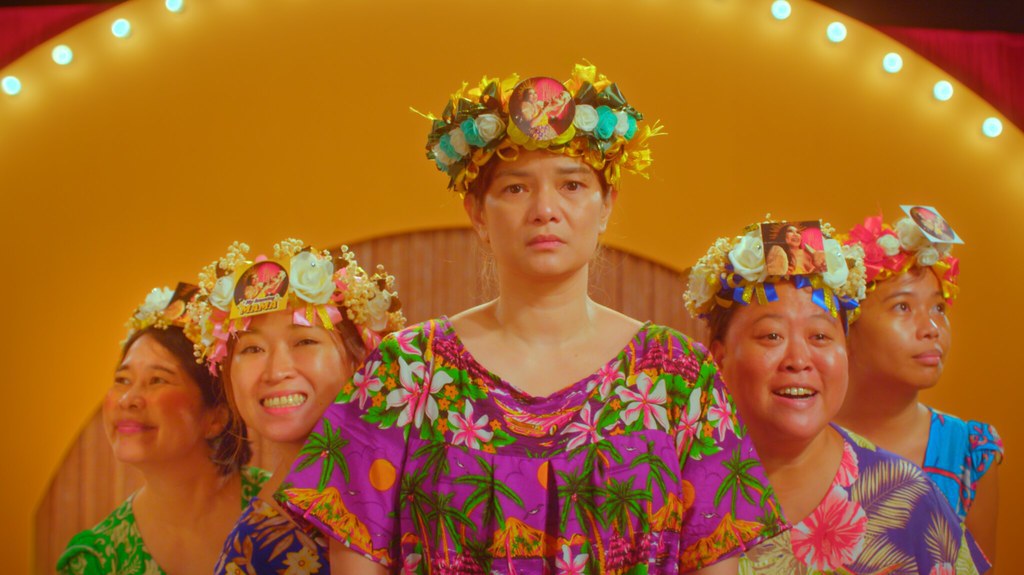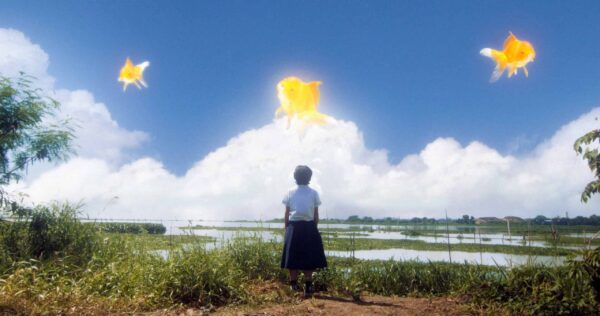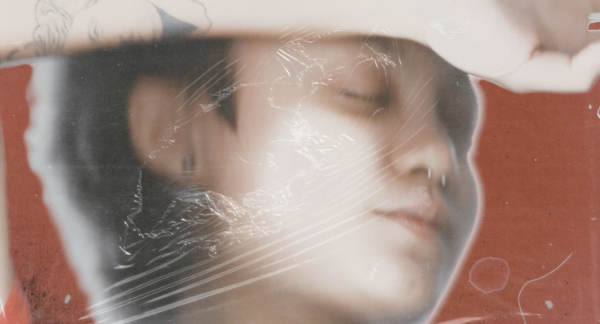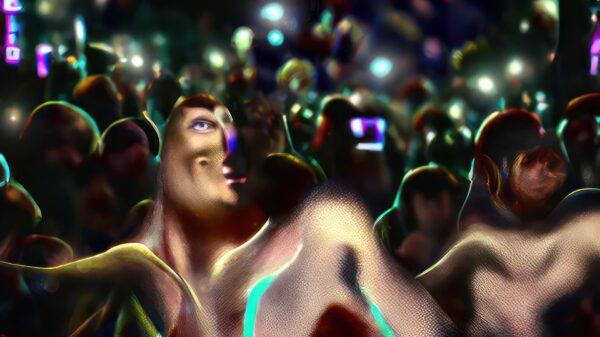Playing Pretend
Primetime Mother
In his satirical take on reality TV, Sonny Calvento blends campy imagery with melodramatic plot twists.

After days of waiting, seven lucky candidates make a beeline towards the small backdoor of a television studio. On the other side of the security guard’s outstretched arm, Mother Number Eight and her fellows issue desperate pleas for admission. There is good money at stake and a chance to be named the next Amazing Mama. But the metal door closes on their appeals.
Sonny Calvento’s Primetime Mother offers a satirical take on reality TV that blends campy imagery with melodramatic plot twists. While the overall result of this marriage is not always entirely convincing, the film helps us consider the enduring appeal of reality TV gameshows, and the (more pernicious) evolution of the genre worldwide.
A hand-held camera draws us into the fun and chaos of television auditions. This perspective is that of Mama Number Seven, whose timid advance amid the mayhem of costumed dancers and excited contestants automatically attracts our sympathy and identification. This is one of the film’s noteworthy attributes: a play on perspectives that unveils the feelings its female protagonists go through.
With bravado or crippling anxiety, candidates present themselves. Some are told to go home after only a few sentences, while the rest wait their turn in line. Mama Number Seven steps to the stage. Understanding that originality is synonymous with survival here, she presents herself in a backhandstand. Later, she reverts to earnestness, describing the reality that has brought her here: her son is sick, his medicine expensive. The showrunner cuts her off: why is she not crying? The message is clear: Fake It Till You Make It, Mama. No coincidence then that one of the first words to come out of the showrunner’s mouth is “pretend.”
With evident glee, Primetime Mother uses camp aesthetics to bring the reality game show to life: a delightfully catchy jingle, beaded orange curtains, crowns of flowers and the marked halo of a spotlight feature recurrently. The legacy of vivid Catholic pageantry, a feature of Filipino popular culture, is tangible everywhere. But the religious symbolism bleeds into the narrative, with mixed results.
Within the airless confines of the television studio, natural time seems to have been abolished. As candidates collapse in exhaustion, unable to keep up with the pace of synchronised dance numbers, our Mama takes advantage of the situation, thrusting herself forward even as others fall behind. Victory is at hand, but a look of melancholy suddenly sweeps across her face. On the other side of the stage, Benjo, her cancerous child, makes a ghostly appearance, looking up at her with intent.
This melodramatic streak intensifies, culminating in a saint-like levitation of our Mommy that transcends the television studio. A change of scenery occurs in the final scene: waking up amid the green decor of a computer-generated Eden, Mama looks around in surprise. Has she… won? But when the camera slowly pans away, her hopes are dashed: she is trapped behind the glass wall of a television screen, pleading for help. Curtains on her dream, and the film.
This is inevitably a let-down, the kind of final narrative flourish expected in a Black Mirror episode. Are the director’s credits as a scriptwriter for television to blame? And what to make of women whose entire identity is predicated on achieving motherly sainthood? Satire is a tightwire act of social commentary, but on these questions, the film risks reproducing the same mechanisms it sets out to mock. The saving grace is Meryll Soriano’s wonderfully nuanced characterisation in the title role: her acting remains a golden thread of vulnerability throughout, despite studio jinks and plot twists. But is her character representative of what reality TV gameshows have evolved into?
A simple principle of social Darwinism animates the genre: the survival of the fittest. Since the early 2000s, we have watched countless contestants engage in the rat race for money and victory to achieve success and even fame. Twenty years after its initial launch in the UK, ‘Big Brother’ is today a franchise with countless national iterations, including in the Philippines, where a seventeenth season has just ended. But though the core principles remain unchanged, casting has moved towards candidates chosen for their ability to court controversy rather than their everyday relatability.
In a bid for public redemption, we could watch disgraced UK health secretary Matt Hancock eat various bits of animal genitalia in last year’s edition of I’m A Celebrity Get Me Out of Here. Nigel Farage, a right-wing agitator instrumental in Brexit, has just feasted on a “penis pizza” as part of a challenge in this year’s edition.
Reality TV seems to be making the most of male egos in need of attention: from 2008 to 2015, Donald Trump played a tough-talking entrepreneur as the host of The Apprentice, setting the stage for his deceiving, if successful, presidential bid. Replete with tweets and policy turns, his presidency was modelled on a gameshow designed to entertain a global audience, and cultivate his personality cult. Earlier this year, Manuel Villar, a businessman, former senator, and the richest man in the Philippines, announced the launch of a new TV network—presumably more authoritative a platform for another try at national politics than eating a giraffe’s penis.
Given the evolution of the genre, one wonders whether Primetime Mother is something of a satirical anachronism in its portrayal of reality TV. Yet the constant gamification of politics should still give us pause: indeed, as electoral runs turn into entertainment spectacles, the risk is that come the end of the electoral show, populist showrunners have the last laugh and tell us to begin playing pretend with democracy.





There are no comments yet, be the first!